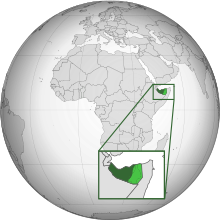Section 377A was a Singaporean law that criminalised sex between consenting adult males. It was introduced under British colonial rule in 1938 when it was added to the Penal Code by the colonial government. It remained a part of the Singapore body of law after the Penal Code review of 2007 which removed most of the other provisions in Section 377. It was subsequently repealed in its entirety in 2023.
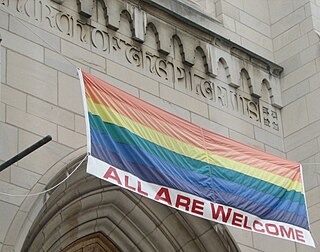
Gay-friendly or LGBT-friendly places, policies, people, or institutions are those that are open and welcoming to gay or LGBT people. They typically aim to create an environment that is supportive, respectful, and non-judgmental towards the LGBT community. The term "gay-friendly" originated in the late 20th century in North America, as a byproduct of a gradual implementation of gay rights, greater acceptance of LGBT people in society, and the recognition of LGBT people as a distinct consumer group for businesses.

Lesbian, gay, bisexual, and transgender (LGBT) people in Nigeria face severe challenges not experienced by non-LGBT residents. LGBT rights are generally infringed upon; homosexual activity is illegal in Nigeria and punishable by up to 16 years of prison in the conventional court system. There is no legal protection for LGBT rights in Nigeria—a largely conservative country of more than 225 million people, split between a mainly Muslim north and a largely Christian south. Very few LGBT persons are open about their sexual orientation, as violence against them is frequent. According to PinkNews, Nigerian authorities generally target the LGBT community. Many LGBT Nigerians are fleeing to countries with progressive law to seek protection.
The ages of consent vary by jurisdiction across Europe. The ages of consent – hereby meaning the age from which one is deemed able to consent to having sex with anyone else of consenting age or above – are between 14 and 18. The vast majority of countries set their ages in the range of 14 to 16; only four countries, Cyprus (17), the Republic of Ireland (17), Turkey (18), and the Vatican City (18), set an age of consent higher than 16.

Lesbian, gay, bisexual, and transgender (LGBT) people in Pakistan face legal and social difficulties compared to non-LGBT persons. Pakistani law prescribes criminal penalties for same-sex sexual acts. The Pakistani Penal Code of 1860, originally developed under the British Raj, criminalises sodomy with possible penalties of prison sentences from two years to a life sentence and fines. Despite its illegality, homosexual acts are only occasionally prosecuted by authorities in Pakistan. Other morality and public order provisions in the Penal Code are however used to target LGBT Pakistanis.
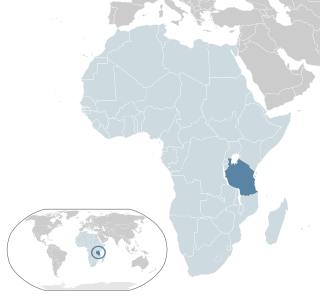
Lesbian, gay, bisexual, and transgender (LGBT) people in Tanzania face severe challenges not experienced by non-LGBT residents. Homosexuality in Tanzania is a socially taboo topic, and same-sex sexual acts are criminal offences, punishable with life imprisonment. The law also criminalises heterosexuals who engage in oral sex and anal intercourse.

Lesbian, gay, bisexual, and transgender (LGBT) people in Sudan face significant challenges not experienced by non-LGBT residents. Homosexual activity in Sudan is illegal for both men and women.

Lesbian, gay, bisexual, transgender, and queer (LGBTQ) people in Bangladesh face widespread social and legal challenges not experienced by non-LGBTQ people. Homosexuality is illegal under Bangladeshi law, which is inherited from the colonial British Indian government's Section 377 of 1860. According to the law, the punishment for engaging in same-sex sexual activities is imprisonment.

Lesbian, gay, bisexual, and transgender (LGBT) persons in Turkmenistan face active discrimination and stigmatization compared to non-LGBT residents. Turkmenistan is one of the only three post-Soviet countries where male homosexual activity remains criminalised, along with Uzbekistan and Chechnya.

Lesbian, gay, bisexual, and transgender (LGBT) people in Brunei face severe challenges not experienced by non-LGBT residents. Both male and female expressions of homosexuality are illegal in Brunei. Sexual activity between men is de jure liable to capital punishment, with de facto lesser penalties of imprisonment and whipping applied; sex between women is punishable by caning or imprisonment. The sultanate applied a moratorium on the death penalty in 2019, which was still in effect as at May 2023. The moratorium could be revoked at any time.

Lesbian, gay, bisexual, and transgender (LGBT) people in Somalia face severe challenges not experienced by non-LGBT residents. Consensual same-sex sexual activity is illegal for both men and women. In areas controlled by al-Shabab, and in Jubaland, capital punishment is imposed for such sexual activity. In other areas, where Sharia does not apply, the civil law code specifies prison sentences of up to three years as penalty. LGBT people are regularly prosecuted by the government and additionally face stigmatization among the broader population. Stigmatization and criminalisation of homosexuality in Somalia occur in a legal and cultural context where 99% of the population follow Islam as their religion, while the country has had an unstable government and has been subjected to a civil war for decades.

This is a list of important events relating to the LGBT community from 1801 to 1900. The earliest published studies of lesbian activity were written in the early 19th century.

A sodomy law is a law that defines certain sexual acts as crimes. The precise sexual acts meant by the term sodomy are rarely spelled out in the law but are typically understood by courts to include any sexual act deemed to be "unnatural" or "immoral". Sodomy typically includes anal sex, oral sex, manual sex, and bestiality. In practice, sodomy laws have rarely been enforced against heterosexual couples, and have mostly been used to target homosexual couples.
Communist attitudes towards LGBT rights have evolved radically in the 21st century. In the 19th and 20th century, communist parties and Marxist–Leninist states varied on LGBT rights; some Western parties were among the first political parties to support LGBT rights, while others, especially the Soviet Union and its Eastern Bloc, harshly persecuted people of the LGBT community.
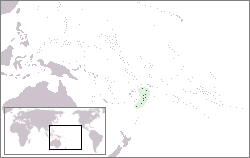
Lesbian, gay, bisexual, and transgender (LGBT) people in Tonga face legal challenges not experienced by non-LGBT residents. Male homosexuality is illegal in Tonga, with a maximum penalty of 10 years imprisonment, but the law is not enforced.
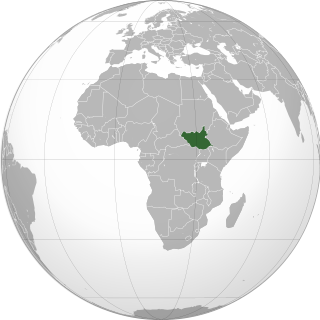
Lesbian, gay, bisexual, and transgender (LGBT) people in South Sudan face legal and societal challenges not experienced by non-LGBT residents. Male same-sex sexual activity is illegal and carries a penalty of up to ten years' imprisonment. Active enforcement of the law is not pursued by authorities: No prosecutions are known to have occurred since South Sudan gained its independence in 2011. LGBT persons are met with abuse and discrimination from agents of the government and additionally face stigmatisation among the broader population.

Lesbian, gay, bisexual, and transgender (LGBT) persons in Northern Nigeria face unique legal and social challenges not experienced by non-LGBT residents. Federal law prohibits all forms of homosexual activities and prescribes up to 14 years imprisonment for those found culpable. While the Maliki form of Shari'a law applied in 12 states have lesser penalty for unmarried persons, it prescribes the death penalty for married individuals.
This is a list of important events relating to the LGBT community from 1701 to 1800.

Capital punishment as a criminal punishment for homosexuality has been implemented by a number of countries in their history. It currently remains a legal punishment in several countries and regions, most of which have sharia–based criminal laws except for Uganda.
Article 365 of the Sri Lankan Penal Code criminalizes "carnal intercourse against the order of nature" and provides for a penalty of up to ten years in prison.
